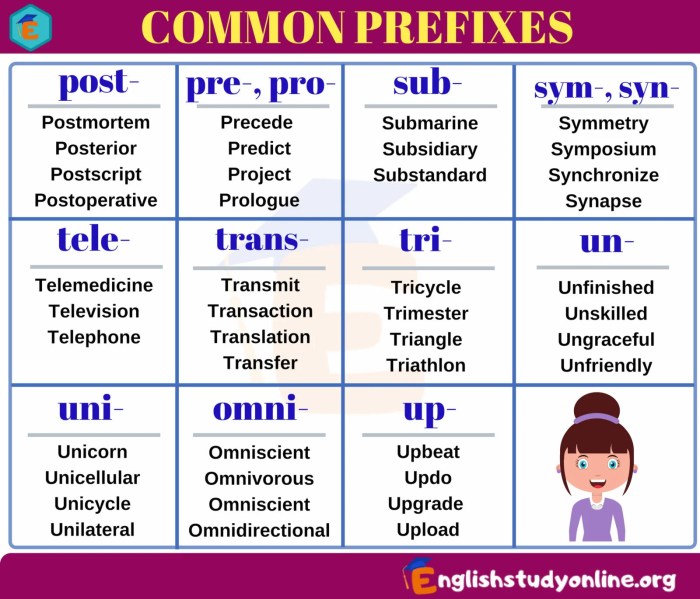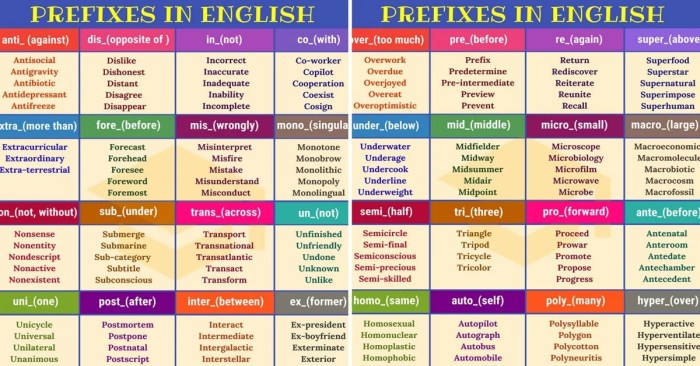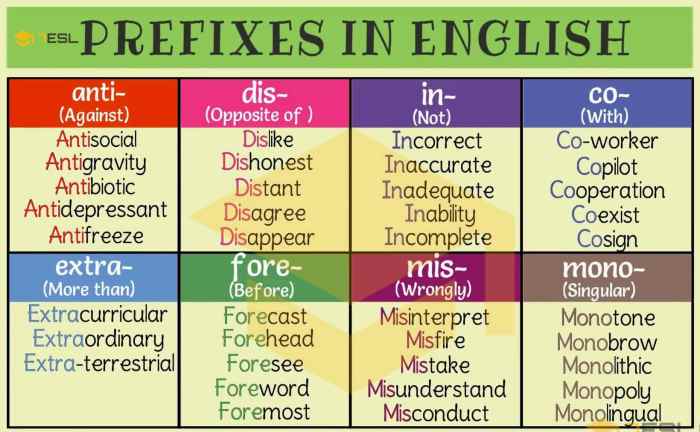Words that have the prefix geo, meaning “earth” or “world,” lead us on an intriguing journey through geography, Earth sciences, and geospatial technologies. From geographical terms like “geomorphology” to Earth’s structure and processes like “geophysics,” the prefix geo provides a gateway to understanding our planet and its complexities.
In geopolitical and cultural contexts, geo takes on new dimensions, shaping human interactions and influencing language, art, and history. Geospatial technologies, such as GIS and remote sensing, harness the power of geo to solve real-world problems and shape our future.
Geographical Terms

The prefix “geo” originates from the Greek word “ge,” meaning “earth.” It is widely used in geography, Earth sciences, and related disciplines to denote concepts associated with the Earth, its physical features, and processes.
Words with the prefix “geo” encompass a wide range of geographical concepts, including:
Geographic Features
- Geomorphology:The study of the Earth’s surface features, such as mountains, rivers, and valleys.
- Geology:The scientific study of the Earth’s composition, structure, and history.
- Geophysics:The study of the Earth’s physical properties, such as its gravity, magnetism, and heat flow.
Geographic Processes
- Geodynamics:The study of the forces and processes that shape the Earth’s surface and interior.
- Geochemistry:The study of the chemical composition of the Earth’s materials.
- Geochronology:The study of the Earth’s age and the dating of geological events.
Geographic Regions, Words that have the prefix geo
- Geopolitics:The study of the political, economic, and social factors that influence the relationships between countries and regions.
- Geospatial analysis:The use of geographic data to analyze and visualize spatial patterns and relationships.
- Geostatistics:The application of statistical methods to the analysis of spatial data.
Earth’s Structure and Processes

The prefix “geo” plays a pivotal role in understanding the intricate structure and dynamic processes that shape our planet. It delves into the Earth’s internal composition, the forces that drive geological phenomena, and the diverse landforms that adorn its surface.
The Geosphere and Its Layers
The geosphere encompasses the Earth’s solid, liquid, and gaseous components. “Geo” enables us to explore the layered structure of the geosphere, including the crust, mantle, and core. Each layer possesses distinct characteristics and compositions, influencing the planet’s overall dynamics.
Geological Processes
Plate tectonics, earthquakes, and volcanic eruptions are prominent geological processes that shape the Earth’s surface. The prefix “geo” aids in comprehending the mechanisms behind these phenomena. It sheds light on how tectonic plates interact, leading to mountain formation, earthquakes, and volcanic activity.
These processes continually reshape the Earth’s topography.
Landforms and Their Formation
Mountains, valleys, and rivers are examples of Earth’s diverse landforms. “Geo” allows us to investigate the geological forces responsible for their formation. We can trace the processes of erosion, deposition, and tectonic uplift that have sculpted these landscapes over time.
Geopolitical and Cultural Contexts: Words That Have The Prefix Geo

The prefix “geo” holds great significance in geopolitical and cultural contexts. It highlights the profound influence of geographical factors on human affairs and interactions.
Geopolitics and Geostrategy
In geopolitics, “geo” denotes the strategic importance of geographical factors, such as location, topography, and natural resources, in shaping political decisions and international relations. Geopolitics analyzes how geographical factors influence power dynamics, military strategies, and diplomatic alliances.
For example, a country’s proximity to major trade routes or its control over strategic waterways can provide it with significant geopolitical advantages. Similarly, the possession of natural resources, such as oil or minerals, can influence a country’s economic and political power.
Geographical Influences on Culture
In cultural contexts, “geo” underscores the profound impact of geographical factors on language, art, history, and societal development. Geographical features, such as mountains, rivers, and climate, can shape cultural practices, traditions, and beliefs.
For instance, the isolation of mountain communities can lead to the development of unique languages and cultural practices, while coastal regions may exhibit influences from maritime trade and cultural exchange.
Exploring words that have the prefix geo, such as geography and geology, can be an enriching endeavor. For those seeking to delve deeper into mathematical concepts, the reveal math course 2 volume 2 offers a comprehensive exploration of geometry, another field where the prefix geo finds its home.
Geo and Human Interactions
The prefix “geo” also sheds light on the role of geography in shaping human interactions and conflicts over territory and resources. Geographical factors can influence patterns of migration, settlement, and competition for resources.
Historical examples abound of conflicts sparked by territorial disputes, such as the rivalry between France and England over control of North America or the ongoing conflict in the Middle East over oil-rich lands.
Geospatial Technologies and Applications

The prefix “geo” plays a crucial role in geospatial technologies, which involve the integration of geographic data with computer-based systems. These technologies have revolutionized the way we collect, analyze, and visualize spatial information, leading to significant advancements in various fields.
One of the most widely used geospatial technologies is geographic information systems (GIS). GIS enables users to create, manage, and analyze spatial data, allowing them to identify patterns, relationships, and trends that would be difficult to detect manually. GIS is extensively used in urban planning, environmental management, disaster response, and many other domains.
Remote Sensing
Remote sensing is another key geospatial technology that involves the acquisition of data about Earth’s surface from a distance, typically using satellites or aircraft. Remote sensing data provides valuable information about land cover, vegetation, water resources, and other environmental parameters.
It is widely used in agriculture, forestry, geology, and disaster monitoring.
Applications of Geospatial Technologies
The applications of geospatial technologies are vast and varied. In urban planning, GIS is used to optimize land use, design transportation systems, and manage infrastructure. In environmental management, it is used to assess natural resources, monitor pollution, and plan conservation strategies.
In disaster response, geospatial technologies are used to map affected areas, assess damage, and coordinate relief efforts.
Ethical Considerations and Challenges
While geospatial technologies offer numerous benefits, they also raise ethical considerations and challenges. One concern is privacy, as geospatial data can reveal sensitive information about individuals and communities. Another challenge is data accuracy and reliability, as geospatial data can be affected by errors and biases.
It is essential to address these issues to ensure the responsible and ethical use of geospatial technologies.
Quick FAQs
What is the etymology of “geo”?
The prefix “geo” comes from the Greek word “ge,” meaning “earth” or “world.”
What are some common words with the prefix “geo”?
Geography, geology, geophysics, geomorphology, geopolitics
How is “geo” used in geospatial technologies?
“Geo” is used in geospatial technologies to refer to geographic information and data, such as in GIS (geographic information systems) and remote sensing.
